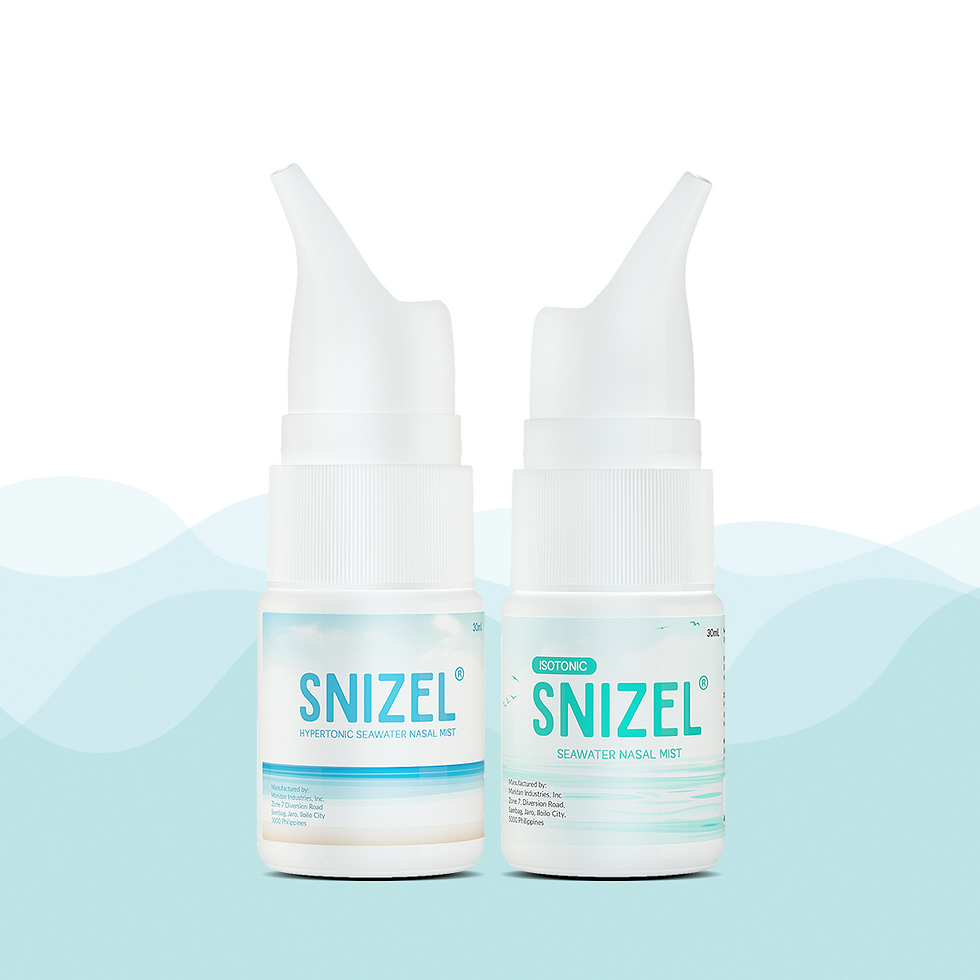Gentle Relief for Sipon with Snizel®
- GalenX
- Sep 29, 2025
- 2 min read

When the rainy season begins in the Philippines, many parents notice their children developing a runny nose or “sipon.” Even without a fever or a cough, kids often have a watery nasal drip that lasts for days. While this is usually not serious, it can be uncomfortable, causing poor sleep and making children fussy.
Cool and humid weather can irritate the nose and trigger the body to produce more mucus. This is the nose’s way of keeping itself moist and protecting the lungs from cold, dirty, or dry air. But for young children, even small weather changes can cause noticeable symptoms because their immune systems are still developing.
A runny nose happens when the lining inside the nose becomes irritated, either by a virus, allergens, cold air, or pollution, and starts to release extra mucus. This mucus may drip out of the nostrils or down the throat (called postnasal drip). It’s often the first sign of a cold, but it can also be triggered by allergies or sudden weather changes.
In most children, especially those under age 5, it’s normal to get colds and mild respiratory symptoms several times a year. According to global health data, children may experience 6 to 10 colds per year, and this number can be higher during the rainy season in tropical countries like the Philippines.

Here are simple things you can do to help your child feel better:
Keep them hydrated
Use steam
Keep their room clean
Let them rest
Use a gentle nasal spray
One of the safest ways to relieve a child’s runny nose is to use a natural saline nasal spray like Snizel®.
Snizel® is made with:
Natural seawater – to clean and moisturize the nose
Essential oils– known for helping ease nasal discomfort and loosen mucus
Snizel® does not contain chemical decongestants, so it’s:
✔️ Non-addictive
✔️ Safe for everyday use
✔️ Gentle for toddlers and children
Parents can use Snizel 2 to 3 times daily to help ease symptoms and keep the nose clear — especially helpful before bedtime or after outdoor play.

Most runny noses go away on their own in a few days. But call your pediatrician if:
The runny nose lasts more than 7 to 10 days
There is fever, green/yellow mucus, or difficulty breathing
Your child is very tired, has ear pain, or isn’t eating well
A runny nose may seem minor, but for a child, it can disrupt sleep, appetite, and energy. Especially during the rainy season, knowing how to manage it at home with natural, gentle remedies like Snizel® can give parents peace of mind.
Snizel® helps support your child’s comfort and breathing — so they can enjoy rainy days without the sniffles slowing them down.
Reference:
Institute for Quality and Efficiency in Health Care (IQWiG). (2023, December 11). Overview: Common colds. InformedHealth.org - NCBI Bookshelf.
Professional, C. C. M. (2025a, April 14). Rhinorrhea (Runny nose). Cleveland Clinic.
Mlcek, J., Jurikova, T., Skrovankova, S., & Sochor, J. (2016). Quercetin and its Anti-Allergic immune response. Molecules, 21(5), 623.https://doi.org/10.3390/molecules21050623




Comments